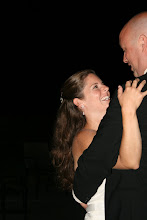
Just the other day I was discussing wiki's with a teacher at my student teaching venue. He is beginning a unit on primary sources and wanted a place where the students could post ideas, articles and resources and be in conversation with one another for all to see. I explained how a wiki could work for him with this assignment and showed him some class wiki's that I have used in the past. He was pretty excited about being able to use this tool and introduce his students to it. He was sure that the only wiki they were familiar with was Wikipedia.
This is not the only time I have introduced someone to the idea of using a wiki for collaboration. I find myself promoting wiki's to teachers and students who are working on projects together and want to keep all of their information in one place. Most importantly they want to be able to add information or make changes to the information that is already there.
I have been using wiki's in graduate school for various tasks and assignments. Because of this I have become a huge fan of how wiki's can be used, and I know I'm probably not even using them to their full potential (this is quite common with most of the technology that we use).
More specifically, I love what Wikipedia has offered us as a society. I understand the concerns of educators of why Wikipedia should not be used, etc. However, I'm not addressing those issues in this blog. I am not a Wikipedia hater, there are just too many of them out there. Someone in this field has to be a supporter! Wikipedia has defined mass collaboration. In fact the definition from Wikipedia is: "Mass collaboration is a form of collective action that occurs when large numbers of people work independently on a single project, often modular in its nature". When I think about what actually happens to make Wikipedia exist, I admit, I get a little choked up. Mass amounts of people working together to provide information to others; It's like they are all librarians at heart.
As far as Wikipedia in schools are concerned I think there is a lot more we can do than just say "Don't use Wikipedia!". Perhaps explaining why Wikipedia is not a good source for certain information is a better way to approach this issue. An effective library lesson could be to have the students enter an article on Wikipedia to show how easy it is for others to post inaccurate, and accurate, information. This kind of lesson seems to be successful in driving home the message.
